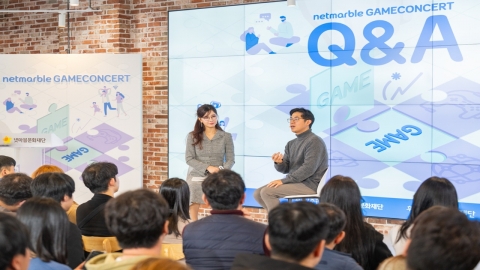[Start Economy] U.S. Regulates Additional Exports of Semiconductors to China... "K-Semiconductors" to Deepen Concerns
■ Host: Anchor Lee Jung-seop, Anchor Cho Ye-jin
■ Starring: Professor Heo Jun-young of Sogang University's Department of Economics
* The text below may differ from the actual broadcast content, so please check the broadcast for more accurate information. Please specify [YTN News START] when quoting.
[Anchor]
We give you the latest economic news quickly and kindly. Start Economy, today with Professor Heo Joon-young of Sogang University's Department of Economics. Welcome, professor. Let's start with the U.S.-China trade conflict. The U.S. announced additional export restrictions on semiconductor equipment to China, which is the third time under the Biden administration. Why do you control semiconductor exports especially against China like this?
[Heo Joon-young]
Half of our semiconductors can be considered industrial goods. The other half can also be considered defense goods. This goes into weapons a lot. In the case of future wars, when we have AI-centered, artificial intelligence-centered wars, in fact, semiconductors go to war. So actually, the ostensible reason for the United States is that this is simply good for China, and in fact, for the United States, if China buys and uses American semiconductors, isn't it good for the United States? Exports are good, but rather than that aspect, China's semiconductors, especially China, seem to be very wary of revitalizing the industry and following technology for semiconductors.
[Anchor]
However, even though it is directed at China now, the fire is likely to spread to Korea as well. In particular, HBM and high-bandwidth memory used in advanced memory semiconductors for A are included in this?
[Heo Joon-young]
So, as the anchor said earlier, the semiconductor regulation began in October 2022, and at that time, if you want to export semiconductors to China, you should get permission. And this is also included in the export. In addition to exporting from the United States, when Korean companies export to China, if even a little of the technology of American companies goes into it, you have to obtain permission from the United States for these things. However, as you know well, the United States is very far ahead in semiconductor design and semiconductor manufacturing equipment. That's why it's impossible to produce semiconductors without the technology of the United States. In that respect, we produce and export HBMs, so we need to look at the export structure. In the case of SK Hynix, we mainly export all of them to the United States. High bandwidth memory, HBM. And in the case of Samsung, there are some potions that are exporting old HBMs to China now. Because of this, 30% of Samsung Electronics' HBM sales come from China. In that respect, it seems that Samsung Electronics will be affected a little more than SK Hynix.
[Anchor]
Of course, China is protesting against the U.S. action and even announced its position. As you said, the U.S.-China conflict was supposed to get permission, but now it is in a position that it can't be controlled at all, so isn't there a possibility that the conflict will become more and more intense when a new administration enters the U.S.?
[Heo Joon-young]
But you have to look at the timing this time, and it was predicted in advance that these regulations would come out in the market, and that these regulations would come out in the Biden administration. So there's a saying that this bought China time. From China's point of view, in the meantime, it was time to pile up a lot of old HBMs from Korea. Considering this, it wasn't long ago that we had an article to pay attention to. Huawei, China, made a semiconductor that is not very latest, but quite the latest, and put it in their phones, even though equipment regulations were very severe in the United States. I think that's what's happening in China right now. The equipment that can make the latest devices is now controlled and cannot enter, but to put it in perspective, we are doing things like making quite new products with old equipment. So, it seems that the market is also interested in how these regulations will find a way out in China in the future and bypass these regulations.
[Anchor]
However, Japan and the Netherlands were excluded from the export control plan. What's the reason?
[Heo Joon-young]
Japan and the Netherlands account for semiconductors. Our semiconductor production processes are scattered around the world, and one of the things Japan and the Netherlands are good at is making semiconductor equipment. So when it's necessary to engrave something on a semiconductor, a lot of those things are done with Dutch equipment. It is also used a lot of equipment called Tokyo Electronic in Japan. These companies are for the ostensible reasons of the United States. I think they're saying that we don't think we'll have to impose that kind of regulation on this company because it's a company that already has the same export control for semiconductors as the United States.
[Anchor]
We are still talking about semiconductors, but anyway, the semiconductor sector occupies a large proportion of the industry in Korea's exports and domestic stock markets. However, these parts have continued to be sluggish, so I heard that KRX fell the most, how much did the semiconductor index fall?
[Heo Joon-young]
This is a stock consisting of 55 semiconductor stocks. There is a KRX semiconductor index, and this is July 1st, 5 months ago. It was 4637 then. But now that I see it, it's 2774 away. In terms of the rate of decline, it has been on the decline for six consecutive months now. It only went up briefly in June, but as shown in the picture now, it started to fall from July, and it fell on July 12.61. And so on, it continued to fall, and in November, 16.02. The drop was steep. It's been on the decline for six consecutive months now.
[Anchor]
The reason why this semiconductor stock is so frustrating is that it is more than 246 trillion won when we only looked at the market capitalization of semiconductor stocks that evaporated in the second half of this year. When do you expect this semiconductor stock to recover?
[Heo Joon-young]
In the case of Korea now, I think we need to look at two things separately. I think we need to look at high-spec semiconductors and low-spec semiconductors separately. In the case of high-spec semiconductors, there is too much demand for AI and server semiconductors right now, and this is doing well, but supply is not keeping up. You can think of it as this situation. Where the low-end main conductor goes is going into mobile phones and PCs, but there are a lot of parts in PC inventory recently, so the price of this semiconductor is falling tremendously among memory semiconductors. In addition, the governor of the Bank of Korea also briefly talked about it at a press conference with the Bank of Korea's Monetary Policy Committee not long ago, but the pursuit of Chinese companies is very scary. We are usually following Chinese companies by increasing production in memory semiconductors. In that respect, if production increases and supply to the market increases, prices will inevitably fall, but prices will fall on the low specification side of the memory semiconductor, so when will this recover? It's two things. One is when demand for PCs and mobile phones, and inventory falls and demand is added again, and the industry seems to see it as early as the second half of next year. But the more structural problem is that Chinese companies are following us now, because this is not just a temporary problem, but a more structural problem, so I think there will be issues of technological gaps about how we will respond to these issues.
[Anchor]
We are talking intensively about semiconductors, but Chinese companies are chasing Korean companies as technology has risen. In order to move forward in global competition, we need to continue investing anyway and move forward, but the situation for large companies seems not easy. There are positions like this that it is difficult to invest, right?
[Heo Joon-young]
If it's a large company, it's usually a company with more than 300 employees. According to a survey of these companies, about 61% of them said they would manage tightening next year. According to a survey of about 240 companies with 30 or more employees, this ratio is about 50%, so if it is limited to large companies, it is more likely that they will do something like 10% tightening management than all companies. If you think about the biggest reason for tightening management, two things stand out when you look at the response. One is sluggish domestic demand. In the end, you have to sell things, but there is not enough demand to buy, and the other is external uncertainty, especially this is very interesting. Don't you have a second Trump administration? According to a survey on the impact on the Korean economy, about 82% of the survey results will be negative. So in the end, Korea has a very export-oriented economic structure. And eventually when protectionism, nationalism, and so on, around the U.S., became so much stronger, the Biden administration did this.In the end, uncertainty for companies seems to be huge in the process of thinking that the second Trump administration is going to do this with much stronger intensity.
[Anchor]
I hope there will be good news through the negative outlook of 82%, what measures do you think are needed to boost investment by companies?
[Heo Joon-young]
When investment is usually sluggish, we usually give companies tax incentives for investment and give tax cuts. There are some areas where investment is not happening now due to sluggish domestic demand, but in my opinion, how it will move in the U.S. now and in the future. And how it will affect the global economy. There are many Korean companies and production bases in Mexico, and there seems to be a lot of uncertainty about what to do in the future. In this case, the government will actually negotiate with the Korean government sometime in the future. In that case, the government is doing well in negotiations that represent the interests of companies very well, and I think that those processes are another important process of eliminating uncertainty in companies in the end.
[Anchor]
Above all, I think it's a season when the government's diplomatic power needs to work hard. Let's look at the next topic. As winter approaches, many ski lovers will go skiing, but is there a fact that equipment and clothing rental companies have colluded around Hongcheon Vivaldi Park ski resort?
[Heo Joon-young]
There are about 57 places. If you go to Hongcheon Park, you can see a lot of shops. Here, through the Kakao Talk group chat room, never receive a certain price for ski or snowboard equipment rental fees, tuition fees, and lift package usage, and so on, the lowest price was decided in advance. This turned out to be an investigation by the FTC. But what's the problem? This collusion is also a problem, but the result of collusion is a price increase. It is said that the lowest price has risen by tens of percent within a year. Compared to last year, the four-hour rental fee for ski equipment, which has increased by 36% this year, is said to have risen that way. In that sense, the damage to consumers they give is huge, but the FTC seems to have decided not to impose fines in consideration of the fact that the budget is small, less than 100 million won, has no history of violations, and has actively cooperated in the FTC investigation.
[Anchor]
It's hard to live, but I think these tricks should disappear in the winter section, what do you think there will be countermeasures?
[Heo Joon-young]
There seems to be a limit to the FTC's detection. In fact, the Fair Trade Commission also receives consumer complaints about these things. It seems that Christmas is coming soon and various collusion related to Christmas may take place soon, but I think consumers' active participation in these things will also be necessary.
[Anchor]
When it comes to price, it's called invisible hands, but I saw hands that were clearly visible. I see. Next news, let's take a look at the New York Stock Exchange. Although it closed mixed, the S&P 500 and Nasdaq reached new highs.
[Heo Joon-young]
It went up a lot with M7 as the center. I think it's like that eventually. We have a Russell 2000 index. It's not the index we're talking about, but it's from the top 1,000th to the 3,000th in market capitalization in the United States, so there are some more mid-sized companies in the United States except for large companies, and if you look at it recently, it seems like the Nasdaq is going up and Russell is going up and down again. Russell has a lot of mid-sized companies, especially since Trump is trying to do manufacturing again while using a lot of fossil fuels, these parts are going back and forth, and in the end, it seems to be a mixture of new technologies and manufacturing.
[Anchor]
I see. That's all for today. It was with Professor Heo Jun-young of Sogang University's Department of Economics. Thank you very much.
※ 'Your report becomes news'
[Kakao Talk] YTN Search and Add Channel
[Phone] 02-398-8585
[Mail] social@ytn. co. kr
■ Starring: Professor Heo Jun-young of Sogang University's Department of Economics
* The text below may differ from the actual broadcast content, so please check the broadcast for more accurate information. Please specify [YTN News START] when quoting.
[Anchor]
We give you the latest economic news quickly and kindly. Start Economy, today with Professor Heo Joon-young of Sogang University's Department of Economics. Welcome, professor. Let's start with the U.S.-China trade conflict. The U.S. announced additional export restrictions on semiconductor equipment to China, which is the third time under the Biden administration. Why do you control semiconductor exports especially against China like this?
[Heo Joon-young]
Half of our semiconductors can be considered industrial goods. The other half can also be considered defense goods. This goes into weapons a lot. In the case of future wars, when we have AI-centered, artificial intelligence-centered wars, in fact, semiconductors go to war. So actually, the ostensible reason for the United States is that this is simply good for China, and in fact, for the United States, if China buys and uses American semiconductors, isn't it good for the United States? Exports are good, but rather than that aspect, China's semiconductors, especially China, seem to be very wary of revitalizing the industry and following technology for semiconductors.
[Anchor]
However, even though it is directed at China now, the fire is likely to spread to Korea as well. In particular, HBM and high-bandwidth memory used in advanced memory semiconductors for A are included in this?
[Heo Joon-young]
So, as the anchor said earlier, the semiconductor regulation began in October 2022, and at that time, if you want to export semiconductors to China, you should get permission. And this is also included in the export. In addition to exporting from the United States, when Korean companies export to China, if even a little of the technology of American companies goes into it, you have to obtain permission from the United States for these things. However, as you know well, the United States is very far ahead in semiconductor design and semiconductor manufacturing equipment. That's why it's impossible to produce semiconductors without the technology of the United States. In that respect, we produce and export HBMs, so we need to look at the export structure. In the case of SK Hynix, we mainly export all of them to the United States. High bandwidth memory, HBM. And in the case of Samsung, there are some potions that are exporting old HBMs to China now. Because of this, 30% of Samsung Electronics' HBM sales come from China. In that respect, it seems that Samsung Electronics will be affected a little more than SK Hynix.
[Anchor]
Of course, China is protesting against the U.S. action and even announced its position. As you said, the U.S.-China conflict was supposed to get permission, but now it is in a position that it can't be controlled at all, so isn't there a possibility that the conflict will become more and more intense when a new administration enters the U.S.?
[Heo Joon-young]
But you have to look at the timing this time, and it was predicted in advance that these regulations would come out in the market, and that these regulations would come out in the Biden administration. So there's a saying that this bought China time. From China's point of view, in the meantime, it was time to pile up a lot of old HBMs from Korea. Considering this, it wasn't long ago that we had an article to pay attention to. Huawei, China, made a semiconductor that is not very latest, but quite the latest, and put it in their phones, even though equipment regulations were very severe in the United States. I think that's what's happening in China right now. The equipment that can make the latest devices is now controlled and cannot enter, but to put it in perspective, we are doing things like making quite new products with old equipment. So, it seems that the market is also interested in how these regulations will find a way out in China in the future and bypass these regulations.
[Anchor]
However, Japan and the Netherlands were excluded from the export control plan. What's the reason?
[Heo Joon-young]
Japan and the Netherlands account for semiconductors. Our semiconductor production processes are scattered around the world, and one of the things Japan and the Netherlands are good at is making semiconductor equipment. So when it's necessary to engrave something on a semiconductor, a lot of those things are done with Dutch equipment. It is also used a lot of equipment called Tokyo Electronic in Japan. These companies are for the ostensible reasons of the United States. I think they're saying that we don't think we'll have to impose that kind of regulation on this company because it's a company that already has the same export control for semiconductors as the United States.
[Anchor]
We are still talking about semiconductors, but anyway, the semiconductor sector occupies a large proportion of the industry in Korea's exports and domestic stock markets. However, these parts have continued to be sluggish, so I heard that KRX fell the most, how much did the semiconductor index fall?
[Heo Joon-young]
This is a stock consisting of 55 semiconductor stocks. There is a KRX semiconductor index, and this is July 1st, 5 months ago. It was 4637 then. But now that I see it, it's 2774 away. In terms of the rate of decline, it has been on the decline for six consecutive months now. It only went up briefly in June, but as shown in the picture now, it started to fall from July, and it fell on July 12.61. And so on, it continued to fall, and in November, 16.02. The drop was steep. It's been on the decline for six consecutive months now.
[Anchor]
The reason why this semiconductor stock is so frustrating is that it is more than 246 trillion won when we only looked at the market capitalization of semiconductor stocks that evaporated in the second half of this year. When do you expect this semiconductor stock to recover?
[Heo Joon-young]
In the case of Korea now, I think we need to look at two things separately. I think we need to look at high-spec semiconductors and low-spec semiconductors separately. In the case of high-spec semiconductors, there is too much demand for AI and server semiconductors right now, and this is doing well, but supply is not keeping up. You can think of it as this situation. Where the low-end main conductor goes is going into mobile phones and PCs, but there are a lot of parts in PC inventory recently, so the price of this semiconductor is falling tremendously among memory semiconductors. In addition, the governor of the Bank of Korea also briefly talked about it at a press conference with the Bank of Korea's Monetary Policy Committee not long ago, but the pursuit of Chinese companies is very scary. We are usually following Chinese companies by increasing production in memory semiconductors. In that respect, if production increases and supply to the market increases, prices will inevitably fall, but prices will fall on the low specification side of the memory semiconductor, so when will this recover? It's two things. One is when demand for PCs and mobile phones, and inventory falls and demand is added again, and the industry seems to see it as early as the second half of next year. But the more structural problem is that Chinese companies are following us now, because this is not just a temporary problem, but a more structural problem, so I think there will be issues of technological gaps about how we will respond to these issues.
[Anchor]
We are talking intensively about semiconductors, but Chinese companies are chasing Korean companies as technology has risen. In order to move forward in global competition, we need to continue investing anyway and move forward, but the situation for large companies seems not easy. There are positions like this that it is difficult to invest, right?
[Heo Joon-young]
If it's a large company, it's usually a company with more than 300 employees. According to a survey of these companies, about 61% of them said they would manage tightening next year. According to a survey of about 240 companies with 30 or more employees, this ratio is about 50%, so if it is limited to large companies, it is more likely that they will do something like 10% tightening management than all companies. If you think about the biggest reason for tightening management, two things stand out when you look at the response. One is sluggish domestic demand. In the end, you have to sell things, but there is not enough demand to buy, and the other is external uncertainty, especially this is very interesting. Don't you have a second Trump administration? According to a survey on the impact on the Korean economy, about 82% of the survey results will be negative. So in the end, Korea has a very export-oriented economic structure. And eventually when protectionism, nationalism, and so on, around the U.S., became so much stronger, the Biden administration did this.In the end, uncertainty for companies seems to be huge in the process of thinking that the second Trump administration is going to do this with much stronger intensity.
[Anchor]
I hope there will be good news through the negative outlook of 82%, what measures do you think are needed to boost investment by companies?
[Heo Joon-young]
When investment is usually sluggish, we usually give companies tax incentives for investment and give tax cuts. There are some areas where investment is not happening now due to sluggish domestic demand, but in my opinion, how it will move in the U.S. now and in the future. And how it will affect the global economy. There are many Korean companies and production bases in Mexico, and there seems to be a lot of uncertainty about what to do in the future. In this case, the government will actually negotiate with the Korean government sometime in the future. In that case, the government is doing well in negotiations that represent the interests of companies very well, and I think that those processes are another important process of eliminating uncertainty in companies in the end.
[Anchor]
Above all, I think it's a season when the government's diplomatic power needs to work hard. Let's look at the next topic. As winter approaches, many ski lovers will go skiing, but is there a fact that equipment and clothing rental companies have colluded around Hongcheon Vivaldi Park ski resort?
[Heo Joon-young]
There are about 57 places. If you go to Hongcheon Park, you can see a lot of shops. Here, through the Kakao Talk group chat room, never receive a certain price for ski or snowboard equipment rental fees, tuition fees, and lift package usage, and so on, the lowest price was decided in advance. This turned out to be an investigation by the FTC. But what's the problem? This collusion is also a problem, but the result of collusion is a price increase. It is said that the lowest price has risen by tens of percent within a year. Compared to last year, the four-hour rental fee for ski equipment, which has increased by 36% this year, is said to have risen that way. In that sense, the damage to consumers they give is huge, but the FTC seems to have decided not to impose fines in consideration of the fact that the budget is small, less than 100 million won, has no history of violations, and has actively cooperated in the FTC investigation.
[Anchor]
It's hard to live, but I think these tricks should disappear in the winter section, what do you think there will be countermeasures?
[Heo Joon-young]
There seems to be a limit to the FTC's detection. In fact, the Fair Trade Commission also receives consumer complaints about these things. It seems that Christmas is coming soon and various collusion related to Christmas may take place soon, but I think consumers' active participation in these things will also be necessary.
[Anchor]
When it comes to price, it's called invisible hands, but I saw hands that were clearly visible. I see. Next news, let's take a look at the New York Stock Exchange. Although it closed mixed, the S&P 500 and Nasdaq reached new highs.
[Heo Joon-young]
It went up a lot with M7 as the center. I think it's like that eventually. We have a Russell 2000 index. It's not the index we're talking about, but it's from the top 1,000th to the 3,000th in market capitalization in the United States, so there are some more mid-sized companies in the United States except for large companies, and if you look at it recently, it seems like the Nasdaq is going up and Russell is going up and down again. Russell has a lot of mid-sized companies, especially since Trump is trying to do manufacturing again while using a lot of fossil fuels, these parts are going back and forth, and in the end, it seems to be a mixture of new technologies and manufacturing.
[Anchor]
I see. That's all for today. It was with Professor Heo Jun-young of Sogang University's Department of Economics. Thank you very much.
※ 'Your report becomes news'
[Kakao Talk] YTN Search and Add Channel
[Phone] 02-398-8585
[Mail] social@ytn. co. kr
[Copyright holder (c) YTN Unauthorized reproduction, redistribution and use of AI data prohibited]
Editor's Recomended News
The Lastest News
-
재생
![[Weather] In the middle of the country, it's freezing again.overnight western rain and snow](https://image.ytn.co.kr/general/jpg/2024/1203/202412030927285212_h.jpg) [Weather] In the middle of the country, it's freezing again.overnight western rain and snow
[Weather] In the middle of the country, it's freezing again.overnight western rain and snow -
재생
!["Golden Phone" by disappeared pollack..."If there is one, submit it to the Democratic Party." [Y Record]](https://image.ytn.co.kr/general/jpg/2024/1203/202412030918337279_h.jpg) "Golden Phone" by disappeared pollack..."If there is one, submit it to the Democratic Party." [Y Record]
"Golden Phone" by disappeared pollack..."If there is one, submit it to the Democratic Party." [Y Record] -
Georgia 'Stop joining the EU' continues to protest...200 arrested.
-
First Vice Foreign Minister meets German Foreign Minister... "concerns about military cooperation between North Korea and Russia."
![[Weather] In the middle of the country, it\'s freezing again.overnight western rain and snow](http://image.ytn.co.kr/general/jpg/2024/1203/202412030927285212_h.jpg)
!["Ski suit and equipment." That\'s why the rental fee was expensive.Customers and friends. [Y Record]](http://image.ytn.co.kr/general/jpg/2024/1203/202412030738581003_h.jpg)







